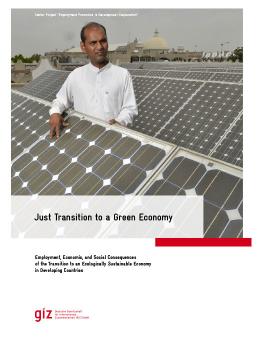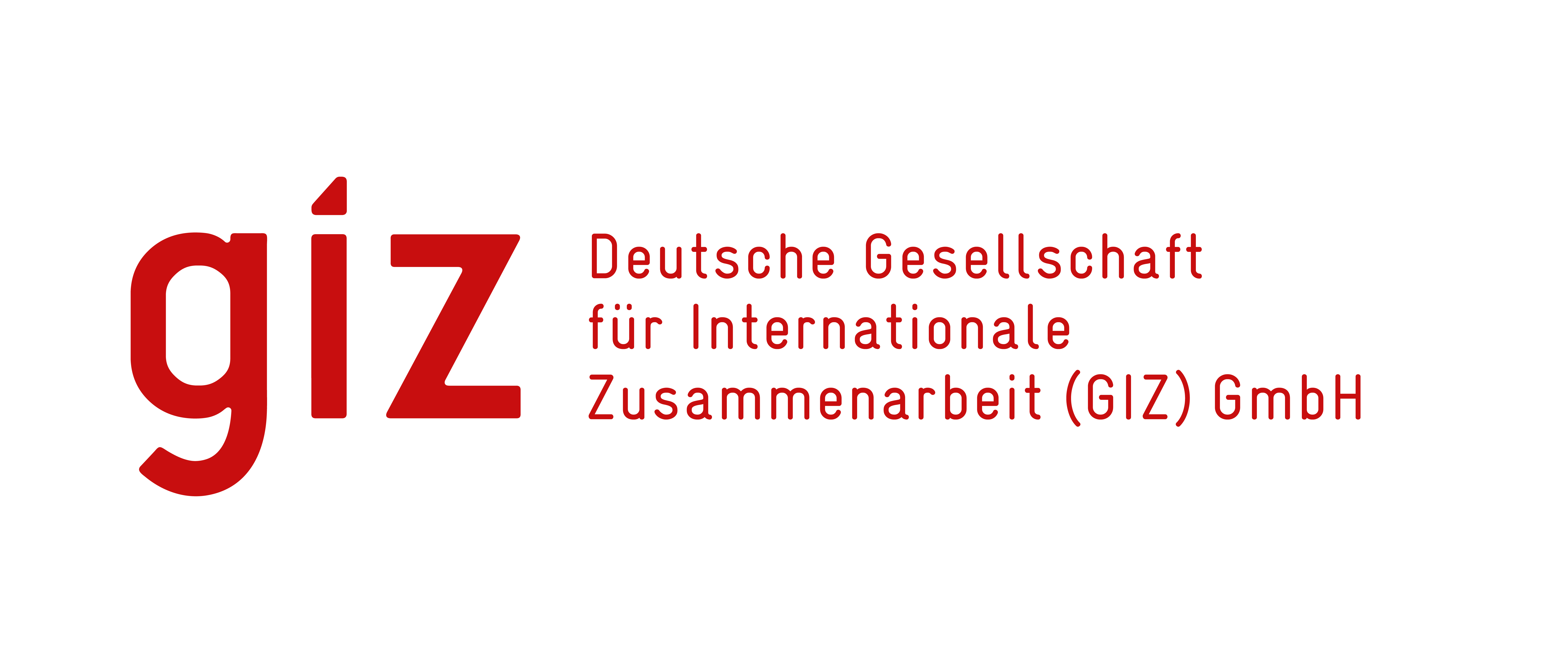
Just Transition to a Green Economy
Employment, Economic, and Social Consequences of the Transition to an Ecologically Sustainable Economy in Developing Countries
This report demonstrates how just transition policies can address relevant challenges in developing countries and emerging economies. It identifies options for political, economic, and social actors to combine environmental change with sustainable development and evaluate the impact of policy and support instruments on employment and social justice. It also defines possible support from the German Development Cooperation. Commissioned by the Deutsche Gesellschaft für Internationale Zusammenarbeit (GIZ) on behalf of the German Federal Ministry for Economic Cooperation and Development (BMZ), this study is based on extensive literature review supplemented by interviews with GIZ and external experts.
Often, a just transition has been associated with the energy sector, but principles for a just transition can be considered across other sectors that may undergo difficult reforms that affect tripartite partners (workers, employers, and government) and stakeholders as countries look to achieve the Agenda 2030, the Sustainable Development Goals, the Paris Agreement on Climate Change (and its Nationally Determined Contributions [NDCs]), and national development and climate strategies.
Based on research into a series of case studies related to a just transition in developing and emerging economies, suggestions emerge for both stakeholders in these countries participating in and supporting just transitions and for German Development Cooperation (GDC) as it looks to support efforts on a just transition at the partner country level. Coal phase-out, fossil fuel subsidy reform, the development of renewable energy, circular economy and waste management, and sustainable agriculture and land use are examined, with case studies in Bangladesh, Colombia, India, Indonesia, Nigeria, South Africa, and other countries.
You might also be interested in
What Will Happen at COP 29?
Talks at the 2024 UN Climate Change Conference (COP 29) will range from defining a way forward on finance through a new collective quantified goal (NCQG) to mitigation, and loss and damage. Ahead of negotiations in Baku, IISD’s Earth Negotiations Bulletin Team Lead Jennifer Bansard examines the agenda and breaks down what to watch as eyes turn to Azerbaijan.
How Indonesia's Incoming President Can Advance the Transition to Clean Energy
With Prabowo Subianto inaugurated as Indonesia’s President, speculation abounds about the new administration’s commitment to the clean energy transition and climate targets, given Prabowo’s positioning as the “continuity candidate.” The question is, what, exactly, will be continued?
Unlocking Clean Power for All
This report uses tipping point theory to advise where public funding can be strategically directed to catalyze renewable energy deployment in developing and emerging economies.
Public Financial Support for Renewable Power Generation and Integration in the G20 Countries
G20 governments provided at least USD 168 billion in public financial support for renewable power in 2023, less than one third of G20 fossil fuel subsidies that year.
